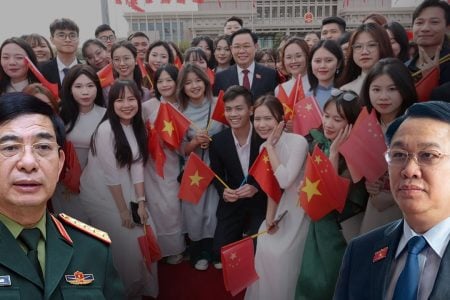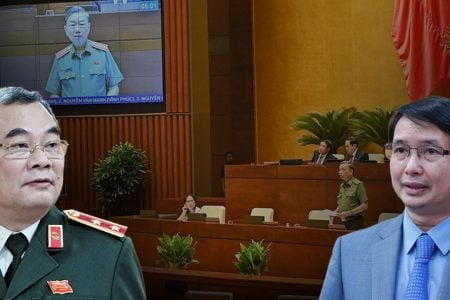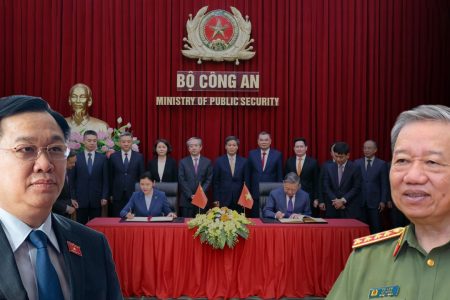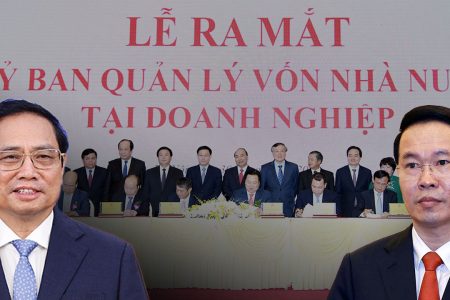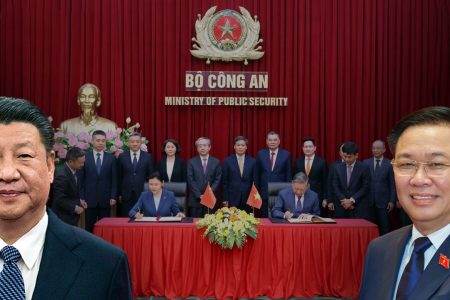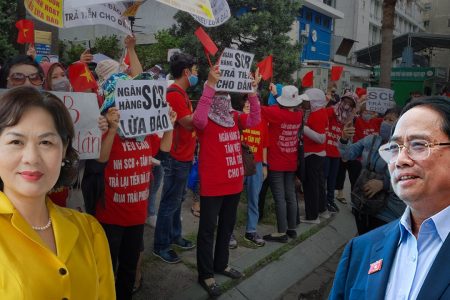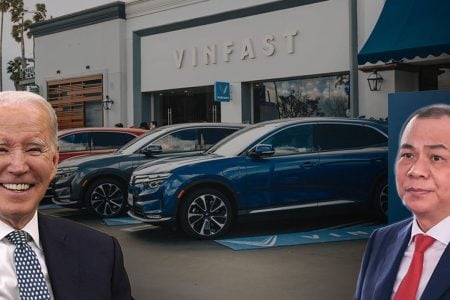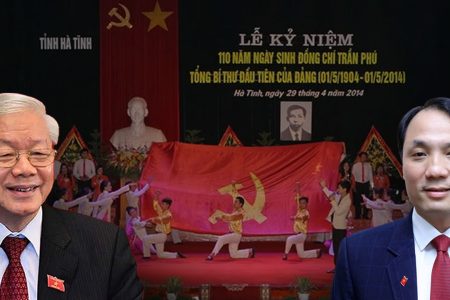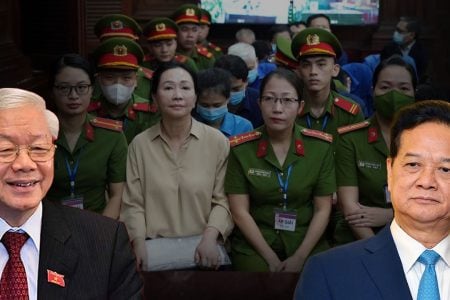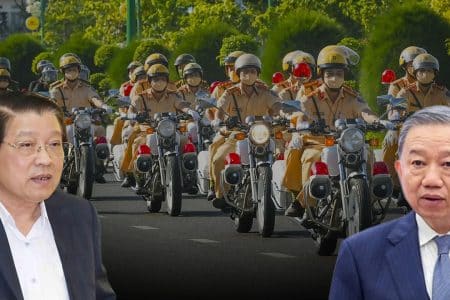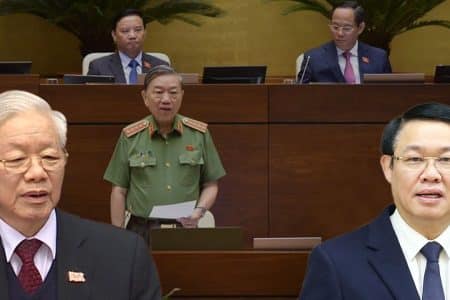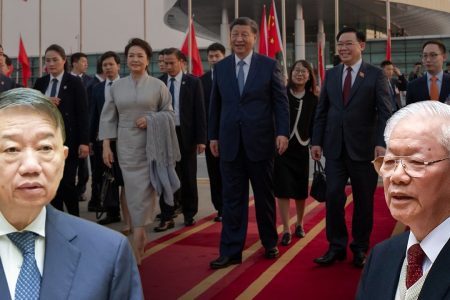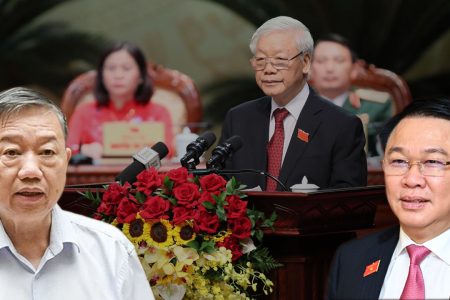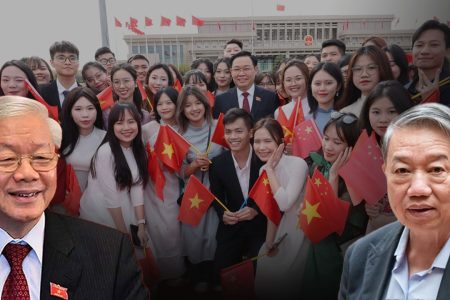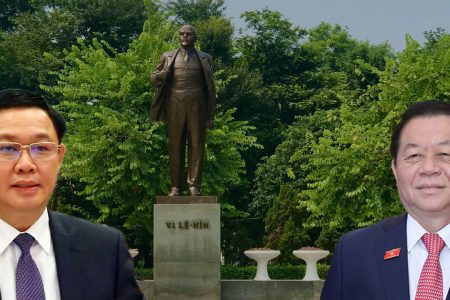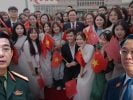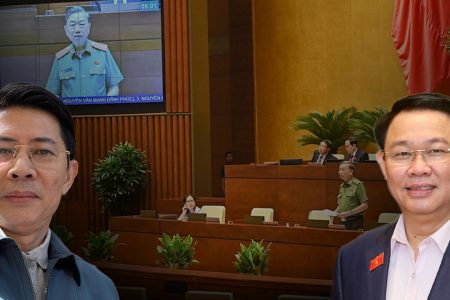
The 20th National Congress of the Communist Party of China ended on October 22, the next day Mr. Nguyen Phu Trong, General Secretary of the Communist Party of Vietnam, was among the first leaders to send a congratulatory message to President Xi Jinping for his re-election of the General Secretary of the Communist Party of China. Moreover, according to the media of the two countries, Mr. Nguyen Phu Trong will visit China from October 30 to November 2 at the invitation of Mr. Xi Jinping. What does this visit mean?
Symbolic
If you observe the above moves, you can comment that the attitude of the head of the Communist Party of Vietnam is “excited” in congratulating “success” bearing a personal mark but expressing “solidarity and similarity” on ideology through the “good relationship and affection between the two Communist parties and two communist leaders.” In his congratulatory telegram to Mr. Xi, Mr. Trong wrote: “I look forward to seeing you again soon so that we can deepen our discussions on strategic issues, contribute to further strengthening political trust, set forth great orientation for the future development of the two countries relations.” However, the “zesty” of the trip despite Mr. Trong’s health “problems” after the accident in 2018 and the lack of publicizing the content of the meeting made this visit very symbolic.
Both Mr. Nguyen Phu Trong and Xi Jinping are “special cases,” that is, “break the norm” of age limits and two terms, to continue to hold power as general secretary of the party in the third term, but each man has his own unique circumstances to “stay.” While Mr. Trong is said to have a reason to maintain the regime from survival from “macroeconomic and institutional instability” in Vietnam, Mr. Xi “needs” to continue to lead the implementation of the “Chinese dream” in the complicated and unpredictable international environment when the competition between superpowers and the Russia-Ukraine war upset the economies and politics of countries. However, the way to keep their power is the same, through purification measures, organizing cadres to “arrange close people” and punish ideological degradation while fighting corruption. Going on that road cannot be without risks, but the “advantage” of the Communist Party’s centralized regime has been maximized.
They have always been comrades, implicitly or openly supporting each other to keep their regimes. When Mr. Trong crossed the age limit to stay for a second term in 2016, Mr. Xi Jinping went to Hanoi shortly after to meet with Mr. Nguyen Phu Trong to show solidarity between the two parties and the states. His visit to China this time can be considered as a “reciprocity,” expressing the ideological and ideological political culture tradition mixed with Confucianism. They are “excellent students” of leader V. Lenin when realizing his wish to have an organizational structure to “turn” the country. The two men were “successful” and they had a great opportunity to discuss the future.
Problems
The high ideological symbolism will not only determine the content of the discussion between the two party leaders, but also contain issues of opinion, chapter, and policy, related to political reform, institutionalization, and economic transformation to the market in the context of the world order increasingly divided according to competition between China, Russia, the US, and the West. Here are four main groups of issues that need to be monitored, and analyzed and need your comments to promote policy reform:

First, the extent of influence of the Chinese Communist Party, as a prop for the Vietnamese Communist Party, to the internal organization, support for staff training, experience consulting and regulatory policies. as well as the coordination in handling urgent situations…? For example, China went ahead with “reform and opening up” with a pragmatic thought, but how is it applied in the specific circumstances of Vietnam, establishing special administrative and economic zones…? Or, although there is no evidence of “interference in internal affairs” why is it always spreading rumors and conspiracy theories?…
Second, there is certainly a commitment to maintaining the traditionally good relations between the two parties and the state, but “principle” issues such as disputes over territorial waters, seas, and islands or “sensitive” such as deployment Can Xi Jinping’s initiative on the “Silk Road” be “compromising” in tacit agreements or in the shadows of specific projects?
Third, how is the application of development theory and economic model compatible with the ambition of a “strong Party-State” with the characteristics of each country, in which each economic topic will be dominated? For example, the total two-way trade between China and Vietnam in 2021 hit $230 billion, how can China’s third position in investment in Vietnam be raised in the context of economic recession, global supply chain disruption due to war, inflation, debt crisis, real estate… in each country?
Fourth, how to choose a development strategy to maintain the independence and autonomy of the country in the current fierce competition between the two ideologies of communism and capitalism? The official extension of Xi Jinping’s third and possibly lifelong leadership term “locks up China’s current policy direction – one that clearly shows hostility to political pluralism and forces of the free market” and, since then, the US and the West no longer have appropriate countermeasures when considering China as a “direct competitor.” Doi Moi in Vietnam is “later” with a lower level of development, whether “pragmatic policy” can be abandoned when economic growth depends on foreign capital investment still must be respected because of its legitimacy due to the name of the good mode, how to continue “swinging“?
It is very important for researchers who are interested in the country to clarify the “deep mind” of the statement of the late General Secretary of the Communist Party of China Deng Xiaoping that he “knows the leaders of Vietnam” and needs to teach ” lessons” for them in the context of the invasion of Vietnam in 1979. Is it an ideological similarity? Currently, there are many comments about Vietnam’s “bamboo diplomacy“, but opinions will become less “weighted” when breaking away from the ideological “golden circle” even though it is only “symbolic” like the upcoming trip to China of the General Secretary of the Communist Party of Vietnam.
Thoibao.de (Translated)




